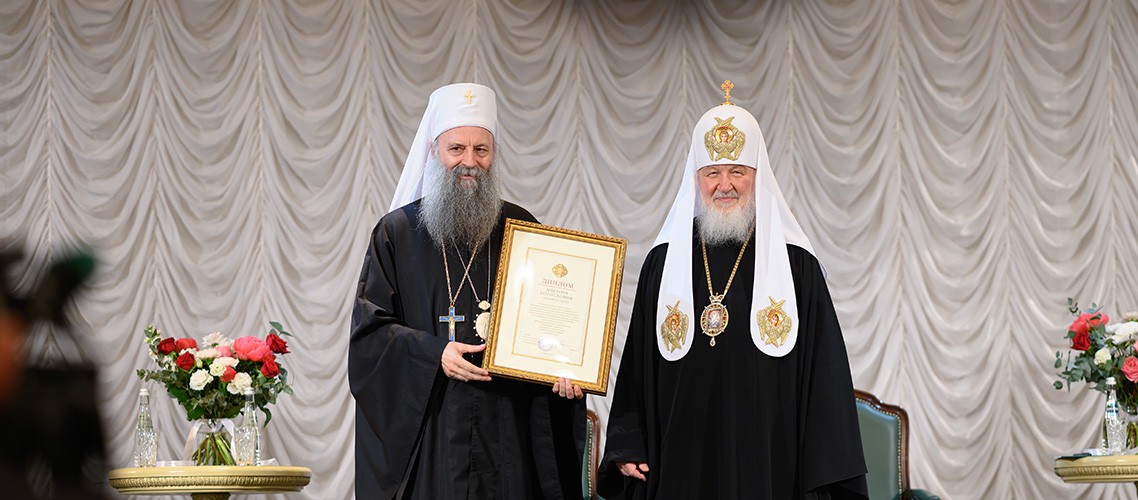
His Holiness Patriarch Kirill of Moscow and All Rus' and His Holiness Patriarch Porfirije of Serbia Visit Moscow Theological Academy
On April 25, 2025, a solemn ceremony was held in the Grand Hall of the Moscow Theological Academy, where His Holiness Patriarch Porfirije of Serbia was awarded an honorary doctorate by the theological school. The ceremony was attended by His Holiness Patriarch Kirill of Moscow and All Rus'.
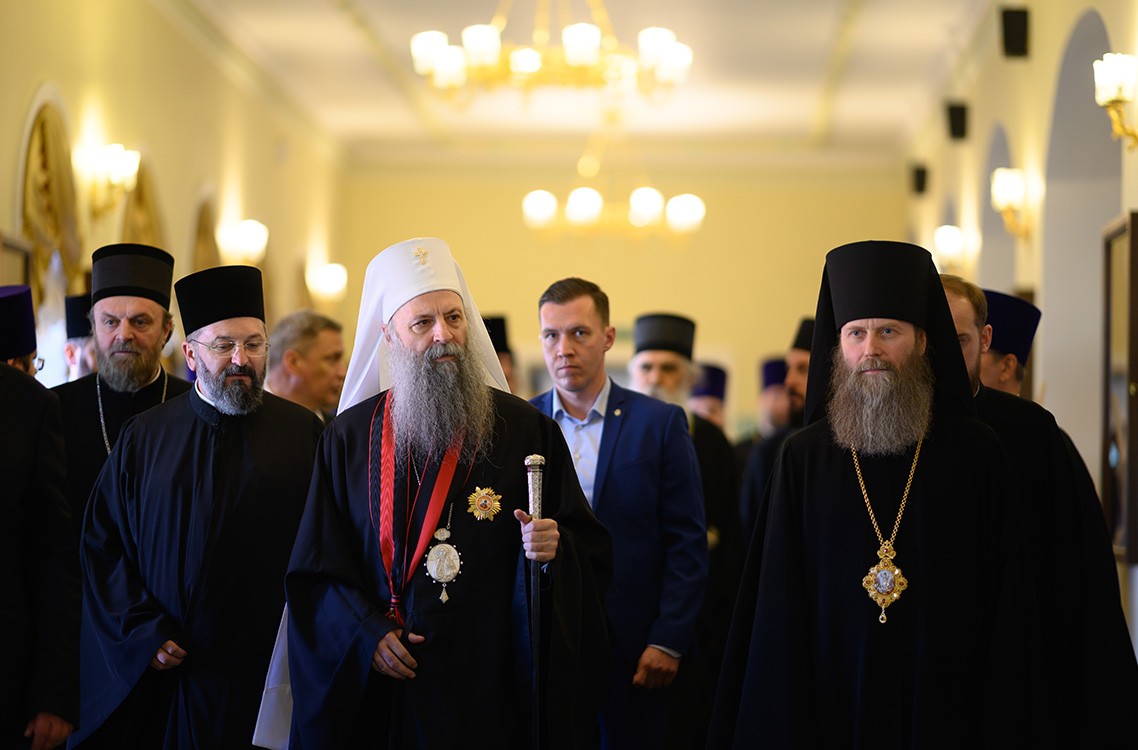
The event was opened by the Rector of the Moscow Theological Academy, Bishop Kirill of Sergiev Posad and Dmitrov, who noted in particular: “In today’s world, where minds and hearts are constantly exposed to informational attacks, often of an anti-Christian nature, theological thought in both Russia and Serbia is being revived for the benefit of our peoples, united by a thousand-year history and the memory of our ancestors. Russian and Serbian students of theological schools are called to convey to modern society the highest truths of Christian morality, reverence for the Church’s Sacraments, and the importance of following the commandments of Christ.”
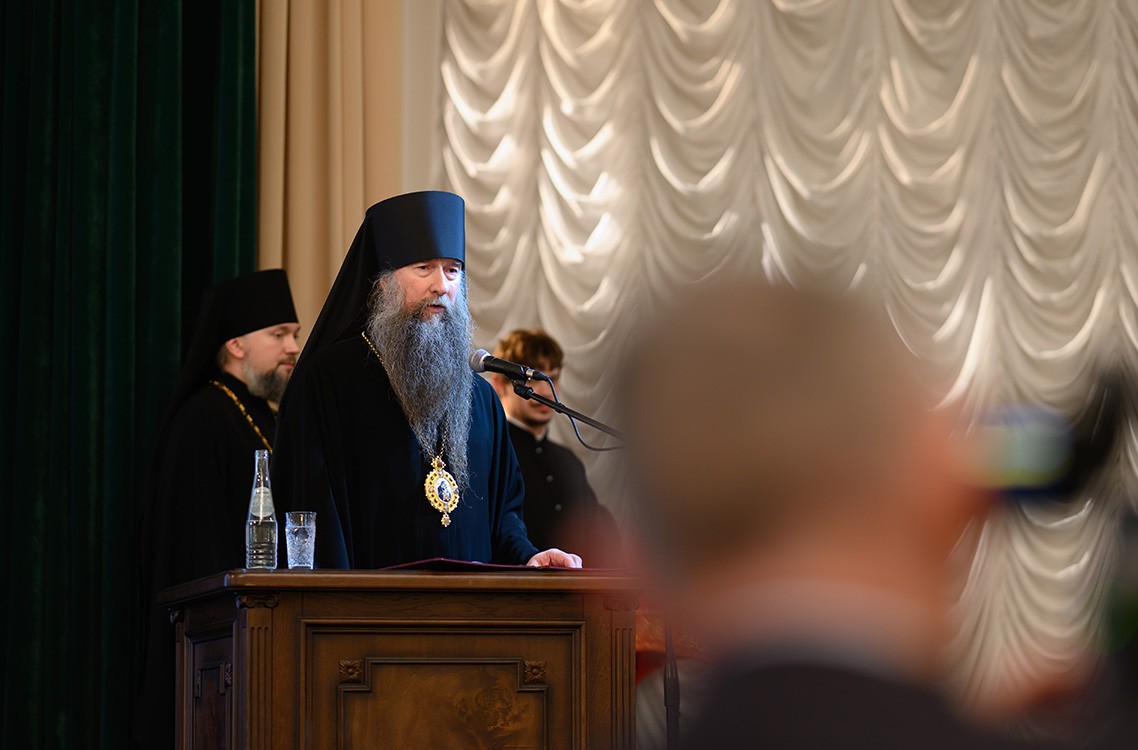
The Rector mentioned that students from the Serbian Orthodox Church traditionally make up a significant portion of the international student body at the leading theological schools of the Russian Orthodox Church — namely, the Moscow and St. Petersburg Theological Academies.

The decision was then announced to award His Holiness Porfirije — Archbishop of Peć, Metropolitan of Belgrade and Karlovci, and Patriarch of Serbia — the honorary degree of Doctor of Theology “in recognition of his acknowledged scholarly and educational contribution to the development of theological science and the strengthening of ties between the Russian and Serbian Orthodox Churches.” The insignia of this honorary title were presented to the Serbian Church’s Primate by His Holiness Patriarch Kirill of Moscow and All Rus'.
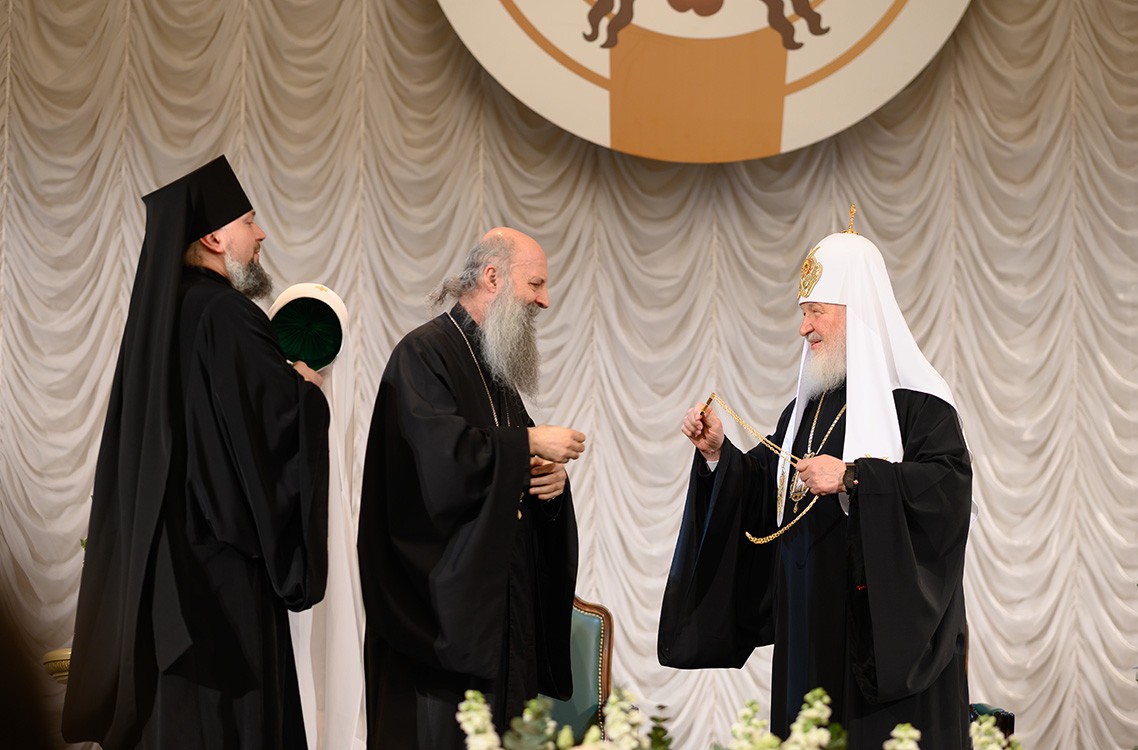
“With deep respect, gratitude, and humility I accept this exceptional honor — the honorary doctorate awarded to me by the renowned and esteemed Moscow Theological Academy at the Holy Trinity-St. Sergius Lavra,” said His Holiness Patriarch Porfirije. “I perceive this award as one of the most significant milestones in my long-standing theological and research work, as well as in my pedagogical and educational service. I do not regard this high honor as a recognition of my own merit, but rather as an expression of the trust placed in me in the service of the Word of God and life in the Orthodox Church of Christ. I accept this award from the theological and scholarly community of the Russian Orthodox Church as a gracious gift and a visible sign of our unity in Christ — a sign that obliges, inspires, and strengthens.”
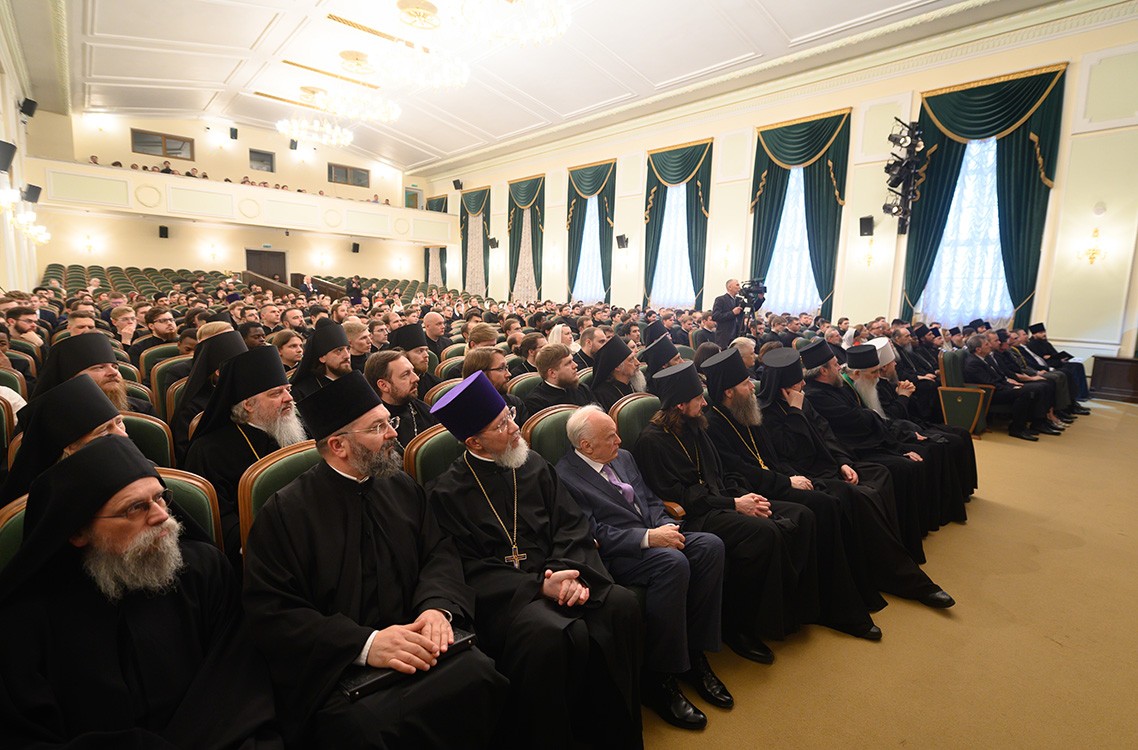
In his doctoral address, delivered in Russian, the Primate of the Serbian Orthodox Church spoke about the inseparable bond between prayer and theology, its cultural significance, and its influence on the social realm of human existence. He described theology as a guardian of human dignity in times of ideological simplifications, and as a witness to unity and love in the light of Christ’s Resurrection.
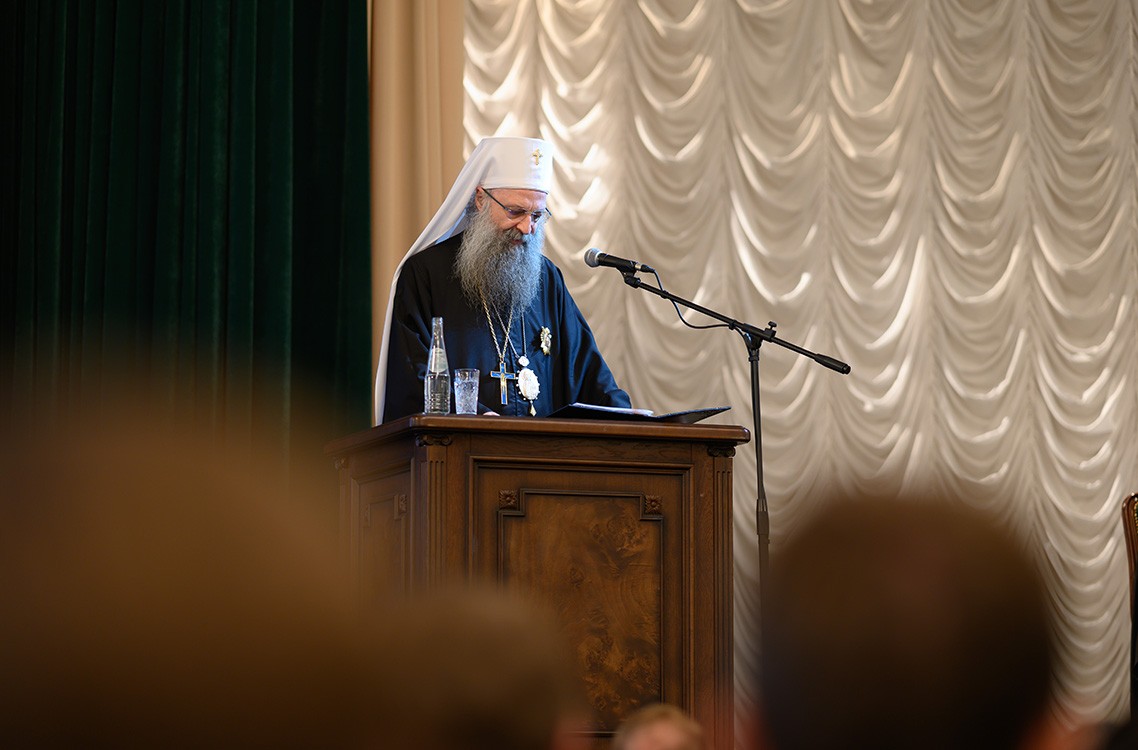
“True theology does not stem from abstract speculative reasoning, but from personal spiritual experience. By personal, we mean not an individualistic experience, but a Church-based one, in harmony with all the saints. In this sense, theology is not primarily an academic endeavor, but the fruit of an existential and liturgical relationship with the living God. Prayer is not a preparation for theology; it is theology. In prayer, a person stands before God not as an observer but as a participant in God’s Eucharistic Mystery. …Prayer, based on fidelity to the Church, becomes a kind of resistance — an act of refusing to accept the selfish and shortsighted logic of this world and a quiet yet steadfast opposition to the forces that seek control instead of communion,” said His Holiness Patriarch Porfirije.
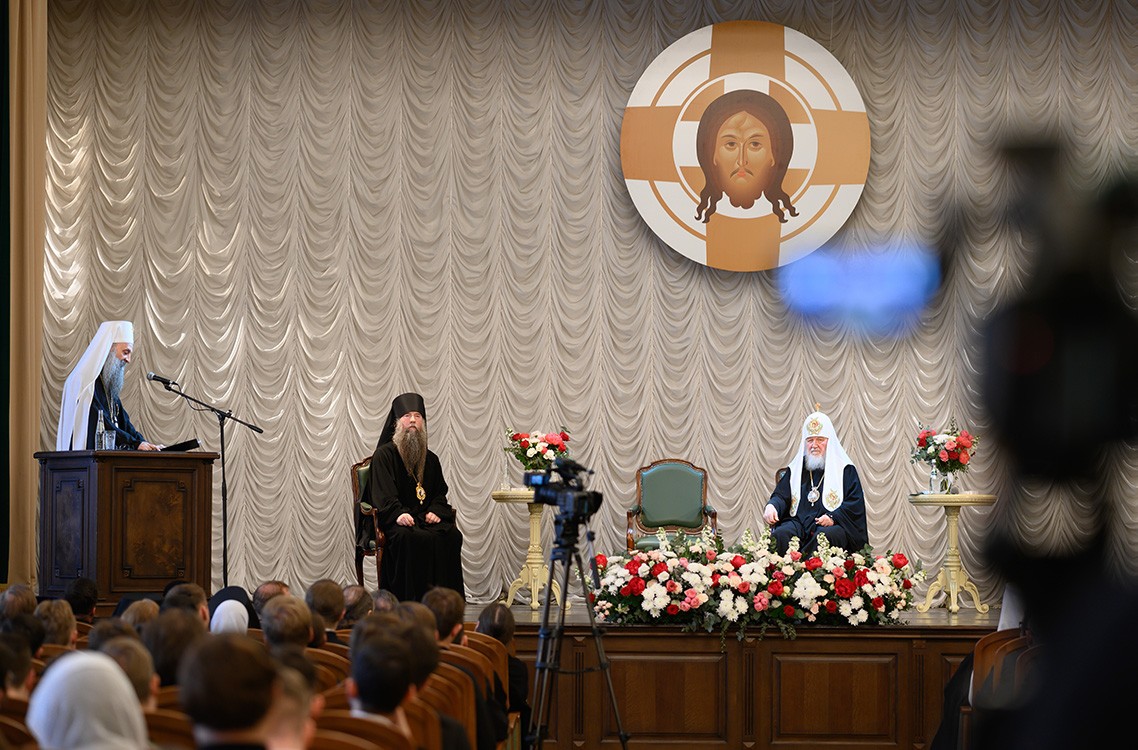
At the conclusion of his speech, the Serbian Church Primate offered heartfelt fraternal wishes to Patriarch Kirill of Moscow and All Rus': “May the Lord grant him many years of wise pastoral and patristic leadership of the sister Russian Orthodox Church, for the spiritual prosperity of the beloved Russian people, for the strengthening of our common Orthodox witness, and for the deepening of our mutual respect, God-pleasing cooperation, and all-encompassing communication in love. To all the faithful clergy, monastics, and people of the Russian Orthodox Church, I send my warmest greetings and sincere prayerful wishes. And to the entire Russian people — a people of profound spirituality and witness — I wish peace, prosperity, and the blessings of God. I thank the Lord and your love for this honor, which I now joyfully share with the faithful people of the Serbian Orthodox Church, whose warm greetings, heartfelt prayers, and Paschal congratulations I bring to you in the joy of the Risen Christ. Christ is Risen!”
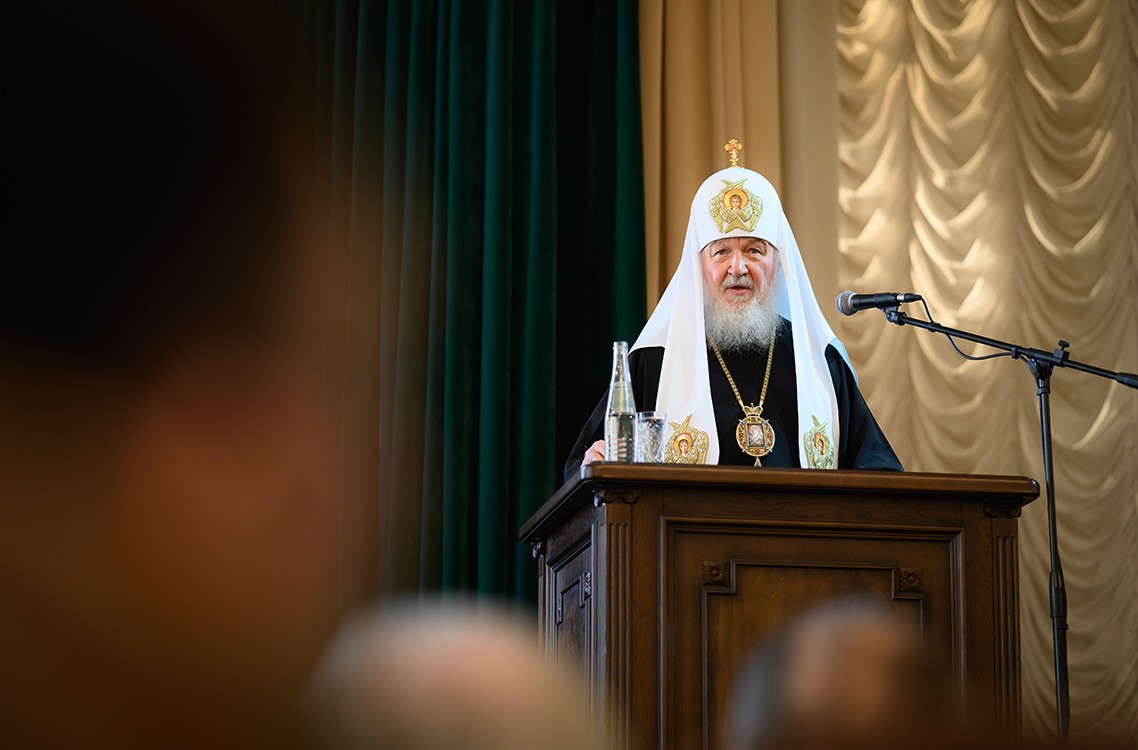
After thanking Patriarch Porfirije for his thoughtful address, the Primate of the Russian Orthodox Church emphasized the importance of speaking such words in theological schools that provoke spiritual reflection and intellectual searching.
In his subsequent remarks, Patriarch Kirill touched on the challenges facing religious consciousness, beginning from the Renaissance and Baroque eras through the modern period and into recent history. He noted that a priest cannot but be a philosopher—someone who thinks about the essential things in life and asks important questions. He must be ready not only to answer those who inquire but also to engage with those who wish to debate, including adherents of various philosophical and ideological positions. Every priest should be a thinker to the best of his ability, His Holiness affirmed, and pastoral preaching “must aim to help modern people understand the problems they face.”
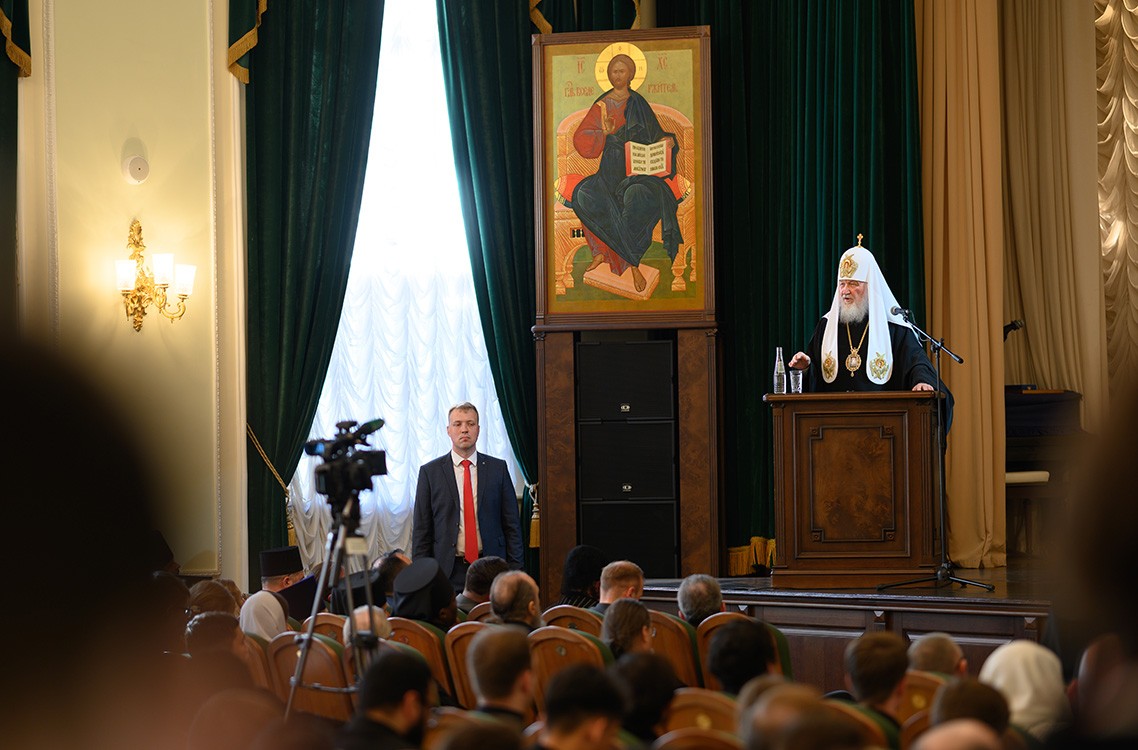
Emphasizing that a pastor’s message must be relevant, Patriarch Kirill said: “This does not mean we should flaunt special modern knowledge or mimic a particular linguistic style. Not at all. We must speak our own language, use our own concepts, but we must make what we say relevant so that our words truly bring about a change in people’s consciousness, strengthen their faith and piety in the highest sense, and — if you will — help shape a philosophy of modern Orthodox life in our country.”
In this regard, the Patriarch especially stressed the importance of being able to ask critical questions of oneself — from students and professors to clergy and bishops, and even the Patriarch himself: “I will tell you frankly — I constantly try to do this and ask myself: Is everything right? Is it all correct? What else needs to be done? I don’t know how successful the answers to these questions are or how much they contribute to the positive development of Church life, but I am deeply convinced that without such self-questioning it’s very easy to turn into a withered fig tree. Everything may appear outwardly correct, but in essence — nothing,” he emphasized.
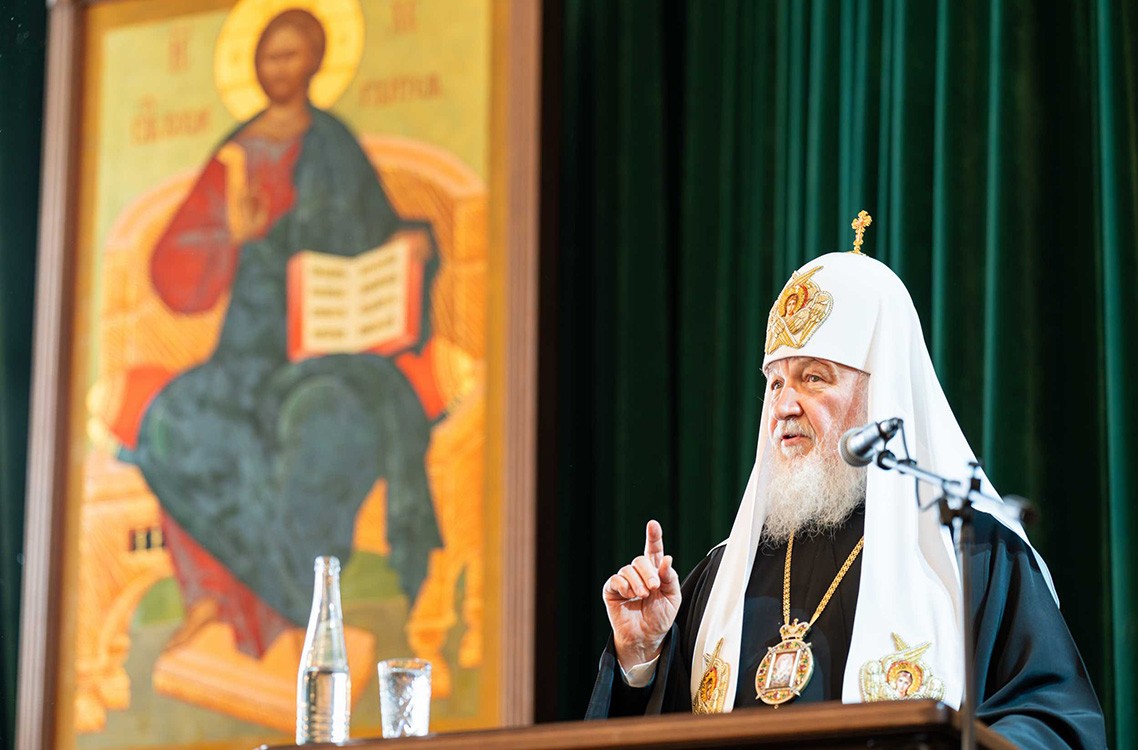
Patriarch Kirill concluded: “I am very glad to be here today, in these walls, together with my beloved brother who leads the fraternal Serbian Church. May the Lord help all of us — in Russia, Serbia, and other countries — to be capable of responding to the questions, challenges, and dangers that confront the Church of God today.”
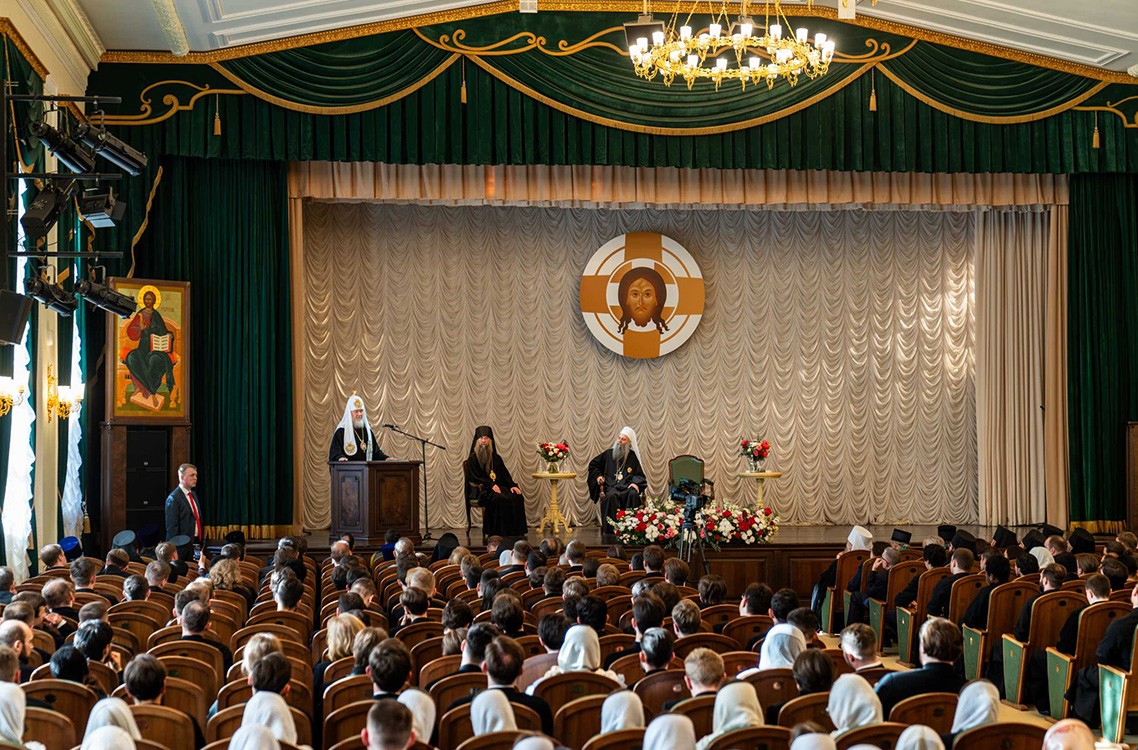
Among those present at the ceremony were the Chancellor of the Moscow Patriarchate, the Patriarch’s first vicar in Moscow Metropolitan Grigory of Voskresensk, Archbishop Thomas of Odintsovo and Krasnogorsk (Head of the Administrative Secretariat of the Moscow Patriarchate), Patriarchal Advisor Archpriest Nikolay Balashov, Deputy Chairman of the DECR Archpriest Igor Yakimchuk, Head of the DECR Protocol Department Igumen Theophan (Lukyanov), DECR Secretariat officer for inter-Orthodox relations A.Y. Khoshev, staff of the Embassy of Serbia, members of the faculty of the Moscow Theological Academy, and numerous students.
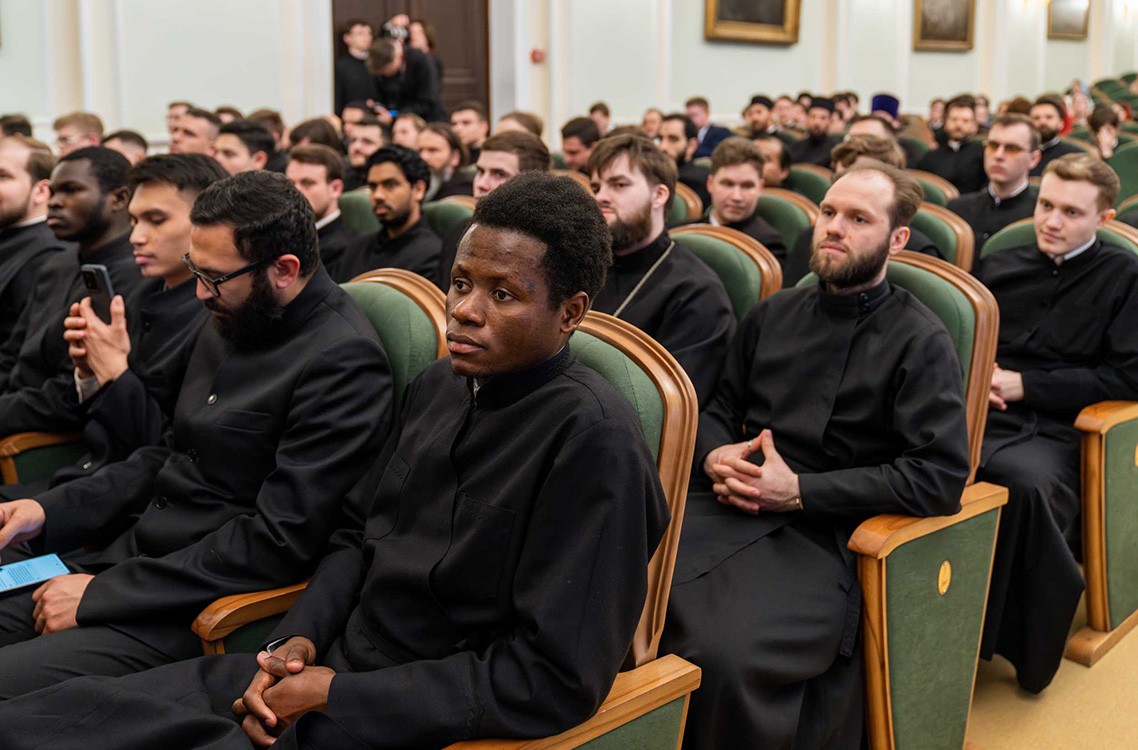
Guests of the event from the Serbian Orthodox Church included Archbishop Irinej of Novi Sad and Metropolitan of Bačka, Abbot Hariton (Pavlica) of Kovilj Monastery, Head of the Serbian Patriarch’s Office Archpriest Georgije Stoisavljević, Rector of St. Sava Seminary in Belgrade Protodeacon Radomir Vrućinić, Protodeacon Radojica Žagran, Hierodeacon Justin (Živanić) of Kovilj Monastery, Deacon Ivan Vasiljević, and subdeacons D. Nakić and V. Jelić.
Patriarchia.ru / MThA Press Office
